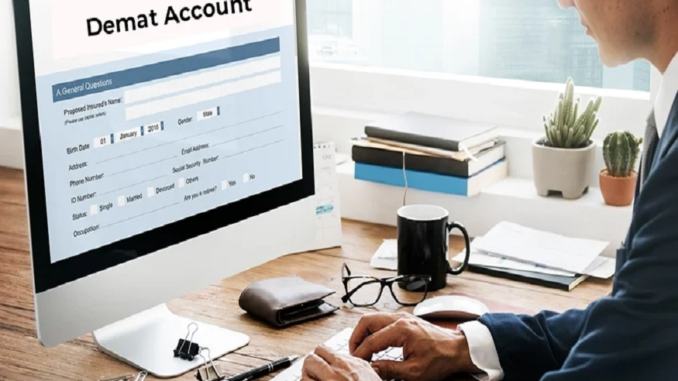
Starting your investment journey can seem overwhelming, especially with so many terms, platforms, and choices. But one thing is clear: a demat account is your gateway to the stock market. Whether you want to trade shares, invest in mutual funds, or buy bonds, you’ll need to open a demat account to hold your investments securely in electronic form.
Here’s everything beginners need to know about demat accounts—from what they are, why they’re essential, to how to choose the right one.
What Is a Demat Account?
A demat account (short for “dematerialised account”) is an electronic account that holds your shares and securities digitally, eliminating the need for physical certificates. This makes buying, selling, and managing investments safer, faster, and more convenient.
Once you open a demat account, you can store stocks, mutual funds, ETFs, government securities, bonds, and more, all in one place.
Why Is a Demat Account Important?
Having a demat account offers many advantages:
- Eliminates the risk of theft or loss of physical share certificates
- Speeds up settlement times—shares are credited or debited instantly
- Reduces paperwork for buying or selling
- Provides a single view of all your holdings
- Makes pledging shares for loans easier
How to Open Demat Account
The process to open a demat account has become quick and paperless thanks to Aadhaar-based e-KYC and digital signatures. Here’s how to do it:
- Choose a SEBI-registered broker or depository participant (DP).
- Fill out the online application form with basic details.
- Upload documents like PAN, Aadhaar, a passport-size photo, and a cancelled cheque or bank statement.
- Complete In-Person Verification (IPV) via video or live photo.
- E-sign the application using Aadhaar OTP.
- Receive your demat account number and login credentials once your application is verified.
Charges Involved in a Demat Account
- Account opening fees: Some brokers charge ₹200–₹800, while others waive it.
- Annual maintenance charges (AMC): Typically ₹200–₹1,000 per year.
- Transaction fees: Small charges for buying or selling shares.
- Custodian fees: Sometimes included in AMC; it’s the fee for keeping your securities in electronic form.
Compare these charges across brokers before you open demat account to find one that fits your budget.
How to Use a Demat Account
Once you’ve set up your demat account, you can:
- Buy shares using your broker’s trading platform. Purchased shares are credited to your account.
- Sell shares anytime and receive funds directly into your linked bank account.
- Monitor your holdings and track the performance of your portfolio.
- Receive dividends, bonuses, and rights issues directly in your demat account.
Choosing the Right Demat Account for Beginners
Look for these features when you open demat account:
- User-friendly app or platform for easy transactions
- Low brokerage and maintenance fees
- Fast customer support through phone, chat, or email
- Research tools and learning resources for beginners
- Strong security with two-factor authentication and encryption
Safety Tips for Your Demat Account
- Use a strong, unique password and change it regularly.
- Enable two-factor authentication for added security.
- Avoid sharing account details with anyone, including so-called advisors.
- Regularly review your demat account statement to spot unauthorized transactions.
Common Mistakes to Avoid
- Not reading the fee structure carefully, leading to unexpected charges.
- Applying for multiple demat accounts unnecessarily, which can complicate portfolio management.
- Ignoring small charges that add up over time.
- Neglecting to update your KYC information if you change address, phone number, or email.
Conclusion
A demat account is the first step to becoming a successful investor. Understanding how to open demat account, what charges to expect, and how to manage your investments safely can give you a strong foundation for your financial journey. As a beginner, take your time to research, compare brokers, and learn the basics—because a well-chosen demat account will make investing simpler, more secure, and more rewarding.

Leave a Reply
You must be logged in to post a comment.